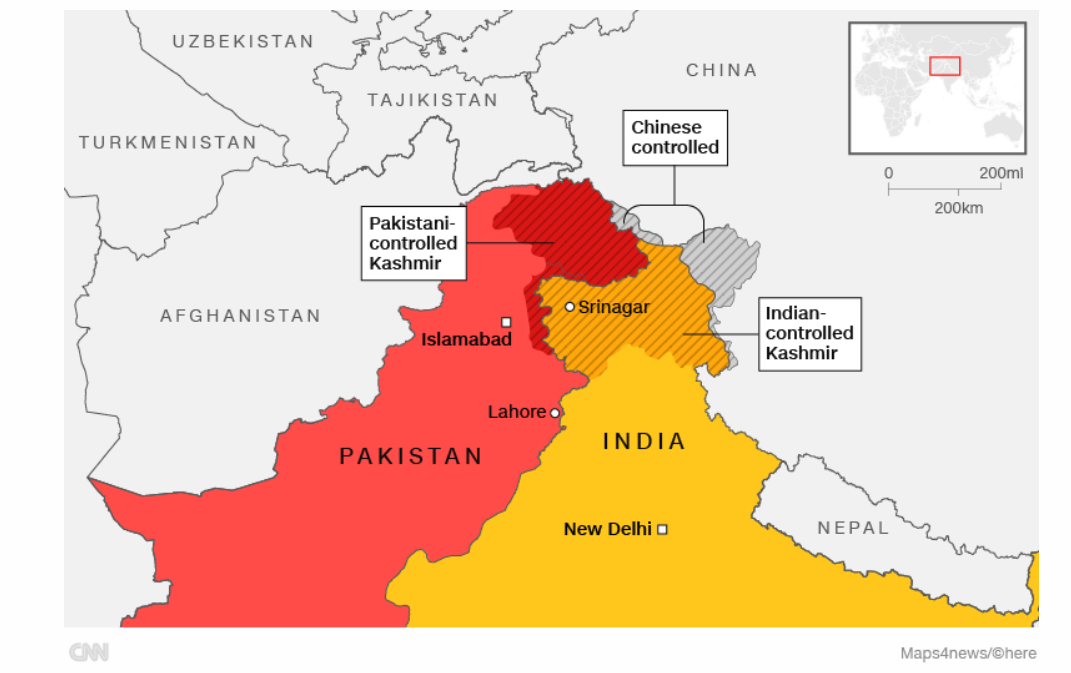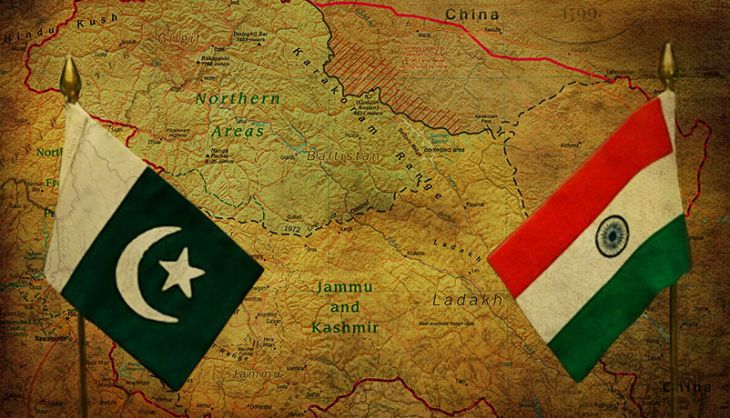Understanding the India Pakistan Kashmir Conflict
Understanding the India Pakistan Kashmir Conflict the India Pakistan Kashmir conflict is one of the longest-running and most complex geopolitical disputes in modern history. At its heart, it involves territorial claims, religious differences, and national pride, intertwined with the broader struggle for political and cultural identity. For more than seventy years, this conflict has shaped not only the relationship between two nuclear-armed nations—India and Pakistan—but also the lives of millions of people who call Kashmir their home.
To understand the India Pakistan Kashmir conflict, it is essential to delve into its history, the political and religious dynamics, and the numerous efforts made to find a peaceful resolution. The conflict has remained a volatile issue, influencing regional security and international relations. In this article, we will explore the key events, the factors that have fueled the discord, and the current state of affairs surrounding Kashmir.

The Roots of the Conflict
The origins of the India Pakistan Kashmir conflict date back to the time of British colonial rule in the Indian subcontinent. British India, which included present-day India, Pakistan, and Bangladesh, was under colonial rule for almost two centuries. The British government decided to partition India into two separate nations—India and Pakistan—along religious lines in 1947. While the partition was meant to create a homeland for Muslims (Pakistan) and Hindus (India), it also sowed the seeds of a conflict that would grow over time, particularly in Kashmir.
The Partition of 1947
The creation of Pakistan was a monumental event in the history of the Indian subcontinent. The British granted independence to India in 1947, but the subsequent partition resulted in mass migrations and widespread violence between Hindus and Muslims. Amidst this upheaval, the princely state of Kashmir, a majority Muslim region ruled by a Hindu Maharaja, Hari Singh, found itself in a precarious position. Kashmir was not automatically allocated to either India or Pakistan, as it was an independent princely state, and the decision of its future would fall to its ruler.
Kashmir’s decision was made even more complicated by the region’s geography and demographics. Pakistan, being a Muslim-majority nation, desired Kashmir to join its territory. India, on the other hand, argued that Kashmir was geographically, culturally, and historically intertwined with its territory. Maharaja Hari Singh initially wanted to remain neutral but, in the face of a Pakistani invasion from tribal areas, decided to accede to India in exchange for military assistance. This move triggered the first Indo-Pakistani war in 1947-48, and Kashmir’s fate was set on a collision course that continues to this day.
The UN and the First War
Following the war, the United Nations intervened and called for a ceasefire between India and Pakistan in 1948. The UN also proposed a plebiscite in Kashmir to allow the people of the region to choose their future. However, this plebiscite never materialized, largely because of disagreements over the terms of the vote and Pakistan’s refusal to withdraw its forces from the region. As a result, the region remained divided by the Line of Control (LoC), with India controlling the larger part and Pakistan administering the smaller portion, known as Azad Jammu and Kashmir.
The unresolved status of Kashmir, with both India and Pakistan claiming it in full, has been a source of tension ever since. This historical backdrop set the stage for decades of conflict, not only in terms of military engagement but also in political and diplomatic arenas.
Key Issues Driving the Conflict
Several factors fuel the ongoing India Pakistan Kashmir conflict, each contributing to the complexity of the situation. The following issues are central to understanding why this conflict has persisted for so long.
1. Territorial Disputes
At the core of the India Pakistan Kashmir conflict is the dispute over territory. Both India and Pakistan lay claim to the entirety of Kashmir, but each controls only part of the region. India controls Jammu and Kashmir, while Pakistan controls Azad Jammu and Kashmir and Gilgit-Baltistan. The region’s location in the northern part of the Indian subcontinent, along with its significance as a strategic area, makes it even more valuable in the eyes of both nations.
Both countries have fought several wars over Kashmir, the most significant being the wars in 1947-48, 1965, and 1999. While the 1947-48 war ended in a ceasefire brokered by the UN, the 1965 war was fought directly over Kashmir. Despite these conflicts, the dispute remains unresolved, with each country holding on to their respective claims.
2. Religious Divides
Religious differences have been a driving factor in the India Pakistan Kashmir conflict. The partition of British India in 1947 was largely based on religious lines—Hindus and Sikhs in India, and Muslims in Pakistan. The majority of Kashmir’s population is Muslim, which has made it a focal point in the rivalry between the Hindu-majority India and Muslim-majority Pakistan.
Pakistan considers Kashmir a part of its Muslim heritage and has long advocated for the region’s integration with Pakistan. India, however, views Kashmir as an integral part of its secular state, arguing that the region’s Muslim majority does not justify its separation. The religious rhetoric around the Kashmir conflict has fueled nationalistic fervor and intensified tensions, making it difficult to achieve a resolution.
3. Self-Determination and Kashmiri Identity
Another important element in the India Pakistan Kashmir conflict is the issue of self-determination for the Kashmiri people. While both India and Pakistan have claimed the region as their own, many Kashmiris have long sought autonomy or independence. In Kashmir, there is a strong sense of regional identity, with many inhabitants believing they should have the right to determine their future without interference from either India or Pakistan.
Over the years, movements for Kashmiri self-determination have taken various forms, including peaceful protests, political activism, and armed insurgency. The Indian-administered region of Jammu and Kashmir has witnessed periods of intense unrest, with violent clashes between Indian security forces and Kashmiri separatists. These movements have led to widespread human rights violations, and the region remains one of the most militarized zones in the world.
4. Strategic Interests
Kashmir holds immense strategic importance due to its geographical location. It serves as a vital access point for both countries in terms of military, economic, and trade routes. Moreover, the region’s rivers are crucial to the water supply for both India and Pakistan, with major rivers such as the Chenab, Jhelum, and Ravi originating in Kashmir. The control over these water sources is another significant aspect of the conflict.
India and Pakistan’s desire to control Kashmir is partly motivated by these strategic concerns, which make the region a highly contested area. The ongoing military standoff and the region’s strategic significance have made Kashmir a flashpoint in South Asia, with the potential to escalate into a broader regional conflict.
Major Events in the Kashmir Conflict
Over the decades, the India Pakistan Kashmir conflict has seen several significant developments, some of which have brought the two nations to the brink of war. Understanding these key events is essential for grasping the full scope of the conflict.
1. The 1965 Indo-Pakistani War
The 1965 war between India and Pakistan was sparked by territorial disputes over Kashmir. Both countries launched military operations, and the conflict escalated into a full-scale war. Although the war ended in a stalemate with both sides agreeing to a ceasefire, the underlying issues of the Kashmir dispute remained unresolved.
2. The 1999 Kargil War
The Kargil War, fought in the Kargil district of Indian-administered Kashmir, was another significant conflict between India and Pakistan. Pakistani forces infiltrated Indian territory in Kargil, leading to intense fighting that lasted for several months. The war ended with India regaining control over the region, but the conflict once again highlighted the volatility of the Kashmir issue.
3. The Revocation of Article 370 (2019)
In August 2019, India made a controversial move by revoking Article 370 of its constitution, which granted special autonomous status to Jammu and Kashmir. This decision was met with widespread criticism, both within India and abroad, as it altered the political landscape of the region. The revocation has deepened the Kashmir dispute, with Pakistan vehemently opposing the move and calling it illegal.
The revocation has also led to an increase in tensions within Jammu and Kashmir, with mass protests, arrests, and restrictions on civil liberties. This action has brought the Kashmir issue back into the international spotlight and raised concerns about regional stability.
International Reactions and the Role of Global Powers
The India Pakistan Kashmir conflict has not only affected the two countries involved but also has global ramifications. Over the years, international powers have taken a keen interest in the Kashmir issue, either through diplomatic interventions or by aligning with one of the parties involved.
The United States, China, and other major world powers have often expressed concern over the potential for conflict in the region, particularly given the nuclear capabilities of both India and Pakistan. While some countries have supported India’s stance, others have sided with Pakistan, further complicating the diplomatic landscape.
The United Nations
The United Nations has played a significant role in the Kashmir conflict since the 1947 ceasefire. While the UN has called for a plebiscite to allow the people of Kashmir to decide their future, it has not been able to facilitate a lasting resolution. The UN’s inability to address the issue effectively has led to frustration and a sense of abandonment among Kashmiris.
The India Pakistan Kashmir conflict remains one of the most entrenched and emotionally charged disputes in the world. It is rooted in territorial, religious, and nationalistic differences that have shaped the region’s history. The conflict has caused immense suffering for the people of Kashmir, with violence, displacement, and loss of life as tragic consequences.
While there have been numerous attempts to resolve the conflict, including diplomatic talks, ceasefire agreements, and UN interventions, the situation remains unresolved. The path to peace requires addressing not only the territorial disputes between India and Pakistan but also the aspirations of the Kashmiri people for self-determination and autonomy.
For a lasting solution to emerge, dialogue, mutual respect, and an understanding of the complex historical and cultural factors at play will be essential. Until then, the India Pakistan Kashmir conflict will remain a significant challenge for regional and global peace.


